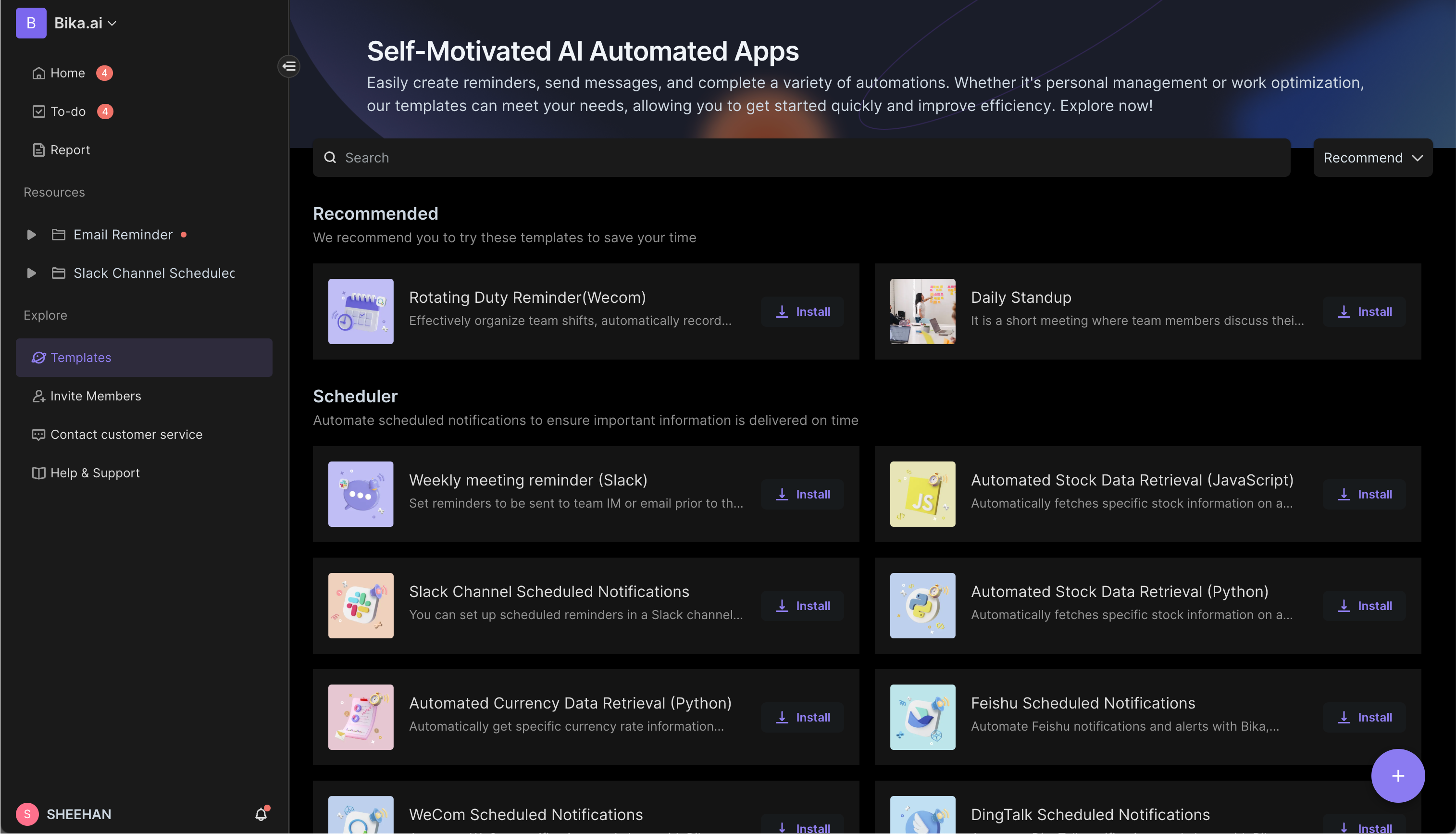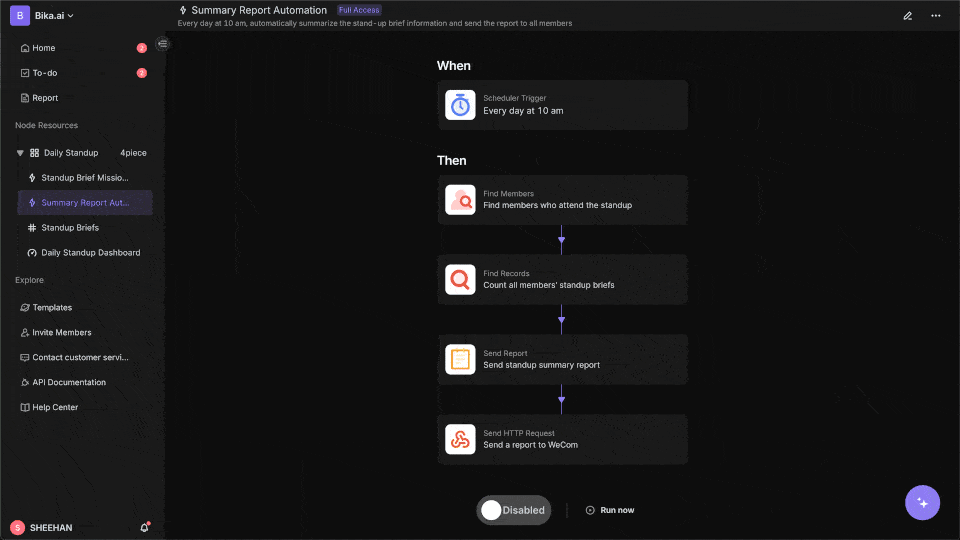
Beyond Tracking: How Customer Sentiment Analysis Automates Habit - Building for Professionals
The Challenge in Building Habits & Routines
For professionals, the journey of building and maintaining consistent habits and routines is fraught with obstacles. Time is often a scarce resource. Between back - to - back meetings, project deadlines, and client demands, finding even a few minutes to focus on personal development can seem like an uphill battle. Motivation, too, is a fleeting companion. After a long day at work, the thought of starting a new workout routine or sitting down to learn a new skill can feel overwhelming, leading to motivation dips that derail progress.
Forgetting steps in a routine is another common pitfall. With so much information to juggle, it's easy to overlook a crucial task in a new habit, such as taking a daily vitamin or sending a follow - up email as part of a sales routine. Integrating new habits into busy workflows is also a challenge. How does one seamlessly fit in a 15 - minute meditation session when the workday is already packed with tasks?
Digital tools offer a glimmer of hope in this struggle. They can act as a guiding hand, helping professionals overcome these challenges and stay on track towards their habit - building goals.
Introducing Habit Tracker & Routine Apps
In recent years, the market has seen a surge in dedicated habit - tracking and routine - planning applications. These apps have become popular due to their user - friendly interfaces and a range of features designed to make habit - building easier.
When users search for the "best habit tracker app" or the "best routine app", they're often looking for features like tracking completion, streaks, reminders, and goal - setting. For example, Streaks (https://streaksapp.com/) is a well - known habit - tracking app that allows users to create a list of habits and track their daily completion. It uses a simple check - off system, and users can set up reminders to ensure they don't forget to perform their habits. HabitNow (https://habitnowapp.com/) focuses on helping users build new habits by providing a clean interface for tracking progress and setting goals. Way of Life (https://wayoflifeapp.com/) offers a more comprehensive approach, allowing users to not only track habits but also analyze their data over time to identify patterns. Habitify (https://habitify.me/) and Habitica (https://habitica.com/) add gamification elements to habit - building. Habitify rewards users with points for completing habits, while Habitica turns habit - building into a role - playing game, where users level up as they complete tasks.
These apps appeal to a wide range of users, especially professionals looking for an easy - to - use tool to keep them accountable. They provide a sense of structure and progress, which can be highly motivating.
The Limits of Simple Tracking
While traditional habit trackers and routine apps are great for basic tracking, they do have their limitations, especially when it comes to the complex needs of professionals or workflows related to tasks like Customer Sentiment Analysis.
Most of these apps are designed primarily to track the completion of a habit or routine. They're excellent at reminding you to do something and letting you mark it as done. However, they don't usually automate the tasks or external processes that support the habit or are part of the routine workflow itself.
For instance, in a business context, if a professional's routine involves analyzing customer feedback to improve products or services, a simple habit tracker can remind them to start the analysis. But it won't help them collect the feedback from various sources, organize it, or actually perform the analysis. This lack of automation means that professionals still have to spend a significant amount of time on manual tasks, which can be a bottleneck in their productivity and habit - building efforts.

Proactive Automation for Habits & Routines: The Bika.ai Customer Sentiment Analysis Template
Bika.ai offers a different approach with its proactive automation concept. It goes beyond the simple tracking offered by traditional apps.
The Customer Sentiment Analysis template is a prime example of this. This powerful tool is designed to help businesses systematically analyze customer feedback and make data - driven decisions to enhance customer satisfaction and loyalty.
First, teams can upload and organize customer reviews from various sources, such as surveys, social media, and review platforms, into a centralized database. This eliminates the need to search through multiple platforms for feedback, saving a significant amount of time. For a professional whose routine involves staying on top of customer feedback, this automation means they don't have to manually collect data every day.
Second, the template allows for sentiment analysis. By manually categorizing reviews by sentiment on the Sentiments page, teams can quickly understand the overall customer mood and identify areas for improvement. This is a crucial part of a professional's habit of continuously improving products or services. Instead of spending hours reading through reviews to gauge sentiment, the template streamlines the process.
Finally, teams can implement changes based on feedback and track the impact over time. This ensures continuous improvement in customer satisfaction. For example, if a product manager has a habit of making iterative product improvements based on customer feedback, the template can help them track the effectiveness of those changes.
The main features of this template, such as centralized customer feedback management, sentiment analysis, and actionable feedback, are highly beneficial for professionals. It proactively automates workflows that support habit and routine building. For instance, a marketing professional who has a routine of adjusting marketing strategies based on customer sentiment can use this template to automate the data - collection and analysis part of their routine.
Try the Customer Sentiment Analysis Template
Building Your Personal Consistency Stack
For professionals, choosing the right tools depends on their specific needs. A dedicated habit tracker can be sufficient when the goal is to simply track the completion of a basic habit, like drinking a certain amount of water every day or doing a quick daily workout.
However, when the habit or routine is more complex and involves external processes, like analyzing customer feedback as part of a business routine, the Customer Sentiment Analysis template or similar proactive automation tools are essential.
These tools can work together. A habit tracker can remind a professional to start the customer sentiment analysis process, while the Bika.ai template automates the actual analysis and data - handling tasks. By combining these tools, professionals can create a more comprehensive and efficient consistency stack.

Conclusion: Smarter Habit Building for Professionals
In the journey of habit - building, professionals often start with simple tracking tools. While these are useful for basic habits, they quickly reach their limits when faced with more complex routines. Proactive automation, as demonstrated by Bika.ai's Customer Sentiment Analysis template, offers a deeper level of support.
The template's ability to automate tasks related to customer feedback analysis can significantly enhance a professional's productivity and consistency. By leveraging such tools, professionals can not only build better habits but also integrate them more effectively into their busy workflows.
We encourage professionals to explore Bika.ai for automating workflows that support personal and professional development, including those adjacent to habit - building. This way, they can take their productivity and habit - building efforts to the next level.

Recommend Reading
- Beyond ChatGPT: Choosing the Right AI Tool for YouTube to Twitter Sharing Automation - Bika.ai Compared
- Unleash Collective Intelligence: How Agent Swarm & Bika.ai are Revolutionizing AI Automation
- Beyond ChatGPT: Choosing the Right AI Tool for Automated Birthday Email Celebration Automation - Bika.ai Compared
- Beyond ChatGPT: Choosing the Right AI Tool for YouTube Publishing Process Automation - Bika.ai Compared
- Beyond Basic Tracking: How Automation Transforms Habit Building for Sales and Finance Professionals
Recommend AI Automation Templates




